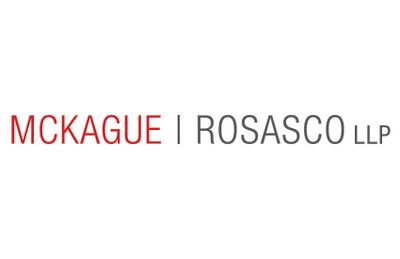Legislative Review: New Laws Impacting California Employers- By Erica Rosasco
Over the course of the 2018 legislative session, Governor Jerry Brown signed into law a number of bills that will impact California employers. The following is a brief summary of a few of the new laws employers should be aware of, and if necessary, revise current policies and practices to ensure that they are compliant.
Sexual Harassment Training (SB 1343)
While current laws already require many employers to provide sexual harassment training, SB 1343 will now require employers with five or more employees to provide training to both supervisory and non-supervisory employees. Beginning January 1, 2020, all employers with five or more employees will be required to provide two hours of sexual harassment training to supervisors and one hour of training to non supervisory employees within six months of hire or promotion, and again every two years after that. The bill also requires the Department of Fair Employment and Housing to develop online training courses that meet the new requirements. Although Labor Code § 1684 already requires farm labor contractors to provide sexual harassment training to all employees, training to non-supervisory employees is not mandated to be any particular length. In order to comply with SB 1343, farm labor contractors should ensure that their training for non-supervisory employees is at least one hour in length within six months of hiring.
Accommodation for Nursing Mothers (AB 1976)
Current law requires employers to make reasonable efforts to provide nursing mothers with a private location, other than a toilet stall, in close proximity to her work area to express breast milk. AB 1976 broadens Labor Code § 1031 to clarify that effective January 1, 2019, employers may not designate a bathroom as the private space to express breast milk. The bill also permits agricultural employers to comply with the law by providing an employee wanting to express milk with a private, enclosed, and shaded space, including, but not limited to, an air-conditioned cab of a truck or tractor.
Confidentiality Provisions in Settlement Agreements (SB 820)
Beginning January 1, 2019, employers who enter into settlement agreements where sexual harassment, assault or discrimination has been alleged will be prohibited from including a confidentiality provision in the agreement restricting disclosure of factual information regarding the claim. Under the bill, a claimant is not prohibited from requesting a provision that shields the identity of the claimant and all facts that could lead to the discovery of his or her identity.
Inquiring About Salary History (AB 2282)
Current law prohibits employers from inquiring about or relying on an applicant’s salary history as a basis for making employment decisions, and requires employers, upon reasonable request, to provide applicants with the pay scale for the position being applied for. AB 2282 adds clarity to Labor Code § 432.3 by defining the terms “pay scale,” “reasonable request” and “applicant,” and expressly providing that employers may legally inquire about an applicant’s salary expectations. The bill also amends Labor Code § 1197.5 to permit employers to make compensation decisions based on an employee’s (but not an applicant’s) current salary as long as any wage differential resulting from that decision is justified by factors other than the employee’s sex. Both laws go into effect on January 1, 2019.
Human Trafficking Awareness (SB 970)
Beginning January 1, 2020, SB 970 will require hotel and motel employers, including bed and breakfast owners, to provide at least 20 minutes of training and education regarding human trafficking awareness to all employees who are likely to interact or to come into contact with victims of human trafficking. The bill also authorizes the Department of Fair Employment and Housing to seek an order requiring an employer to comply.
Right to Receive Pay Statements (SB 1252)
SB 1252 amends Labor Code § 226 to provide that current and former employees have a right to not only inspect or copy their pay statements, but also to receive copies of the statements. If an employee requests copies of the statements, the employer may charge the employee the actual cost of reproduction. The amendment goes into effect on January 1, 2019.
Contractor Liability (AB 1565)
AB 1565 immediately repealed an express provision in Labor Code § 218.7 that relieved direct construction contractors of liability for anything other than unpaid wages and fringe or other benefit payments or contributions. For any contracts entered into on or after January 1, 2019, a direct contractor or subcontractor must list the specific documents or information that a lower tiered subcontractor will be required to produce before the direct contractor or subcontractor is allowed to withhold any disputed payments from the lower tiered subcontractor.

